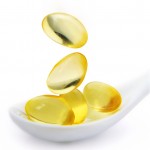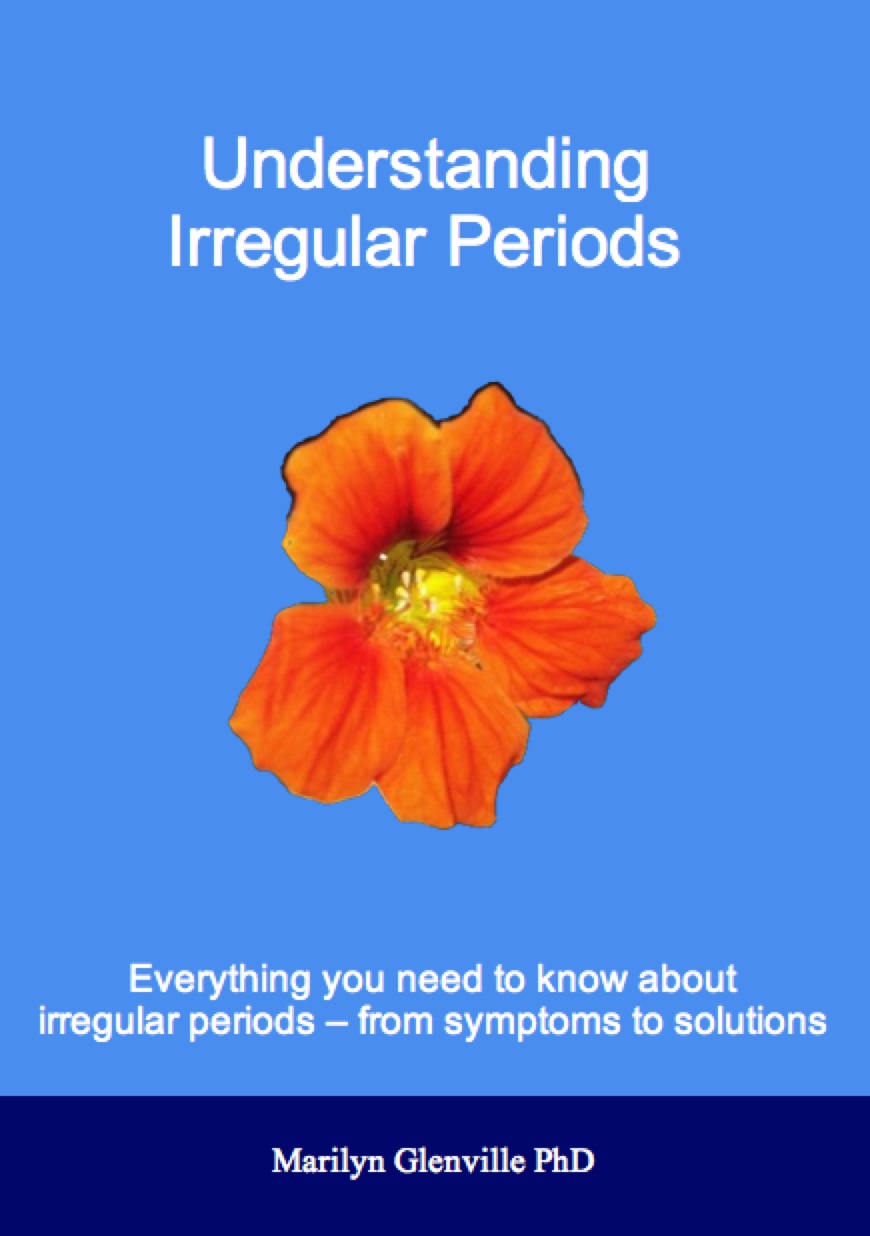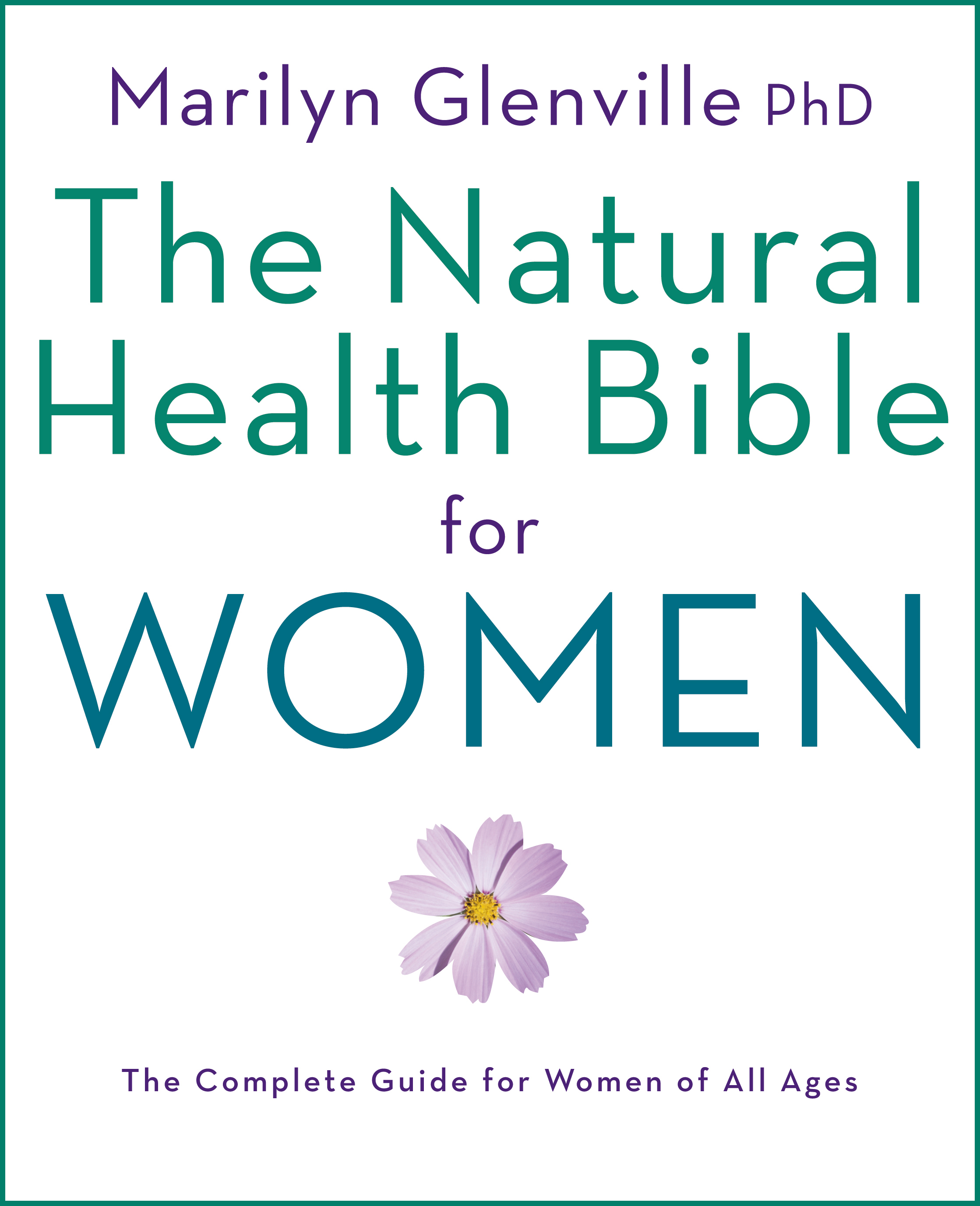Irregular Periods

What are irregular periods?
Irregular periods are simply those that are not regular. If you suffer from irregular periods, you simply will not know when your period is going to appear. Cycles can vary from 23 to 35 days, but they are classed as regular if your periods occur at roughly the same time each cycle. So, even if your periods are, say, 35 days apart instead of the usual 28, but they always appear at day 35, they would be classified as being ‘normal’. Irregular periods can be extremely difficult or even impossible to track.
What are the symptoms?
Minor cycle irregularities are common. For example, you may have your period on day 23 of one month and then the next month on day 35.
You may, however, have a much more irregular cycle, in which case it is important that you have further investigations, so that other problems, such as polycystic ovary syndrome (see polycystic ovary syndrome section) can be ruled out. The following symptoms are characteristic of irregular periods, and you can experience a combination of any or all of these:
1. Large gaps with no periods
2. Some gaps and then periods coming too frequently for a while (for example, two in one month) followed by gaps again.
3. Gaps of no periods and then bleeding continuously for a few weeks.
4. Spotting in between period.
What are your choices?

Supplements

Multivitamin and Mineral
A good quality multivitamin and mineral would form the foundation of your supplement programme to make sure that you are getting a ‘little bit of everything’. You then add in those nutrients in slightly higher amounts which are known to be helpful for irregular periods.
B Vitamins
These are often called the ‘stress’ vitamins because they can help you to cope with the pressures of everyday life. As stress can be such an important factor in causing irregular periods it is important that you have some help in dealing with it. Vitamins B2, B3 and B6 are also necessary for thyroid hormone production and B5 (pantothenic acid) is essential for optimum adrenal function. Both imbalances in thyroid function and stress can affect your cycle.
The easiest way to make sure you are getting a good supply of these vitamins is to take them in the form of a good B-complex tablet. B vitamins are synergistic, which means that they work together.
Antioxidants
Antioxidants are particularly relevant with irregular periods. It is believed that antioxidants have the ability to prevent cells from mutating. In other words, they prevent cells from becoming ‘abnormal’. This is extremely important if you have been diagnosed with thickening of the womb lining (endometrial hyperplasia) because you don’t want the cells to mutate. Antioxidants include vitamins A, C and E and the mineral selenium. Their effects have been proven: women with womb tumours have been shown to have less of both selenium and vitamin E than women without them so make sure you are getting enough of these valuable nutrients
Magnesium
This mineral has been classed as ‘nature’s tranquilliser’, so it is an essential inclusion in the diet of anyone suffering from irregular periods. In fact, anyone in today’s hectic society will benefit from a magnesium supplement. Stress is often a factor in period irregularity, and this mineral will help to redress the balance of a stressful lifestyle.
Omega 3 Fatty Acids
Flaxseeds (linseeds), which are an excellent source Omega-3 fatty acids, have been shown to encourage regularity of the cycle. Even if hormonal imbalance is not at the root of your problem, it is worth adding these fatty acids to your diet. There are many factors that are now known to affect the way fatty acids are used by our bodies, including high adrenaline levels (in the case of stress), high alcohol consumption, and high levels of cholesterol. If your body is NOT getting or using enough of the fatty acids consumed, your cycle can be affected. You can’t lose by adding these supplements to your diet.
Furthermore, by adopting a healthier lifestyle you will be more likely to prevent irregular periods which is discussed in detail in the rest of this ebook which you can read by clicking on Understanding Irregular Periods ebook at The Natural Health Practice
Herbs

Agnus castus (Vitex/Chastetree berry)
This herb stimulates and normalises the function of the pituitary gland which in turn helps to balance hormone output from the ovaries and to stimulate ovulation. Agnus castus is also useful when there is an excess of prolactin which can be suppressing ovulation. Furthermore, it has been shown to reduce thickening of the lining of the womb (endometrial hyperplasia) and can be used on a preventative basis.
Caution
You should not take any of the above herbs if you are taking, The Pill, Fertility drugs, HRT or any other hormonal treatment or other medication unless they are recommended by a registered, experienced practitioner.
Tests

Mineral Deficiency Test with Supplement Programme (hair)
Find out what the mineral and heavy toxic levels are in your body
This test measures the deficiencies and excess levels of 12 different minerals (including calcium, chromium, cobalt, copper, iron, magnesium, manganese, phosphorus, potassium, selenium, sodium and zinc) and 6 heavy toxic metals (including aluminium, arsenic, cadmium, lead, mercury and nickel) that may be present in your body. Find out more – Mineral Deficiency Test with Supplement Programme (hair)
Online Personalised Supplement Assessment Programme
Discover what vitamins and minerals you need and should be taking
The analysis of this comprehensive questionnaire will give you a three monthly supplement programme to help balance any vitamin and mineral deficiencies you may have. Find out more – Online Personalised Supplement Assessment Programme
Female Hormone Test (saliva)
Are your hormones in balance?
This is a very simple test that is done at home and then sent to the lab for analysis. The Female Hormone Profile analyses levels of oestrogen, progesterone and testosterone over 28 days using 11 saliva samples. This test is helpful for women with menstrual irregularities, difficulties with ovulation, infertility and premenstrual symptoms. Find out more – Female Hormone Test (saliva)
Omega 3 Deficiency Test (at home finger prick blood)
If you want to find out if you are getting enough Omega 3 fatty acids from your diet and whether you have the correct balance of essential fatty acids.
Signs of an Omega 3 fatty acid are dry skin, lifeless hair, cracked nails, fatigue, depression, dry eyes, lack of motivation, aching joints, difficulty in losing weight, forgetfulness, breast pain. If you have also tried to lose weight by going on a low-fat or no-fat diet, you are likely to be deficient in these essential fats. It is now estimated that we are getting ten times more Omega 6 fats from our diet than Omega 3 and over the last century there has been an 80% decrease in the consumption of these Omega 3 fatty acids. When you eat Omega 3 fats they are converted to substances that have an anti-inflammatory effect on the body.
Many of the women I see in the clinic have been taking evening primrose oil supplements – an Omega 6 fatty acid – for many years as it can be helpful with PMS. But you can end up with too much Omega 6 and not enough Omega 3 in your body. Some women are also taking combinations such as Omega 3, 6, and 9 in supplement form because they have heard that we need a good balance of all the Omega fatty acids. This is true, but you have to take into account what your own levels may be in the first place. It is no good adding in more Omega 6 if you have already got enough or in fact too much in your body. (You can now have a blood test to tell you if you have the correct levels of Omega 3 to Omega 6 in your body see below). To check whether you have sufficient levels of Omega 3 please click Omega 3 Deficiency Test (at home finger prick blood)
After three months you would then have a re-test in order to monitor your progress and adjust your supplement programme according to your new condition.
If you need help in obtaining any of the supplements, herbs or tests mentioned above, click, Irregular periods options at The Natural Health Practice. They can supply all of them for you online or if you prefer to talk to somebody first you can also order by mail order on the telephone. The products supplied by this company are always of the highest quality.
Plan of Action
Nutrition
Ensure you are getting the right nutrition.Follow the dietary recommendations outlined in the free The Foundation of Health ebook For more information on the special dietary recommendations for irregular periods, read the rest of the ebook on Understanding Irregular Periods ebook at The Natural Health Practice
Supplements
The supplement programme below should be taken for at least three months in order to achieve best results
Nutrients & amounts
| A good multi-vitamin & mineral supplement | Omega 3 fish oils | 770mg EPA & 510mg DHA | |
| B Complex with each B Vitamin | 25mg | Vitamin C | 1000mg |
| Magnesium | 300mg | ||
| Antioxidants e.g. Vitamins A & E, selenium & zinc |
To avoid having to purchase numerous supplements for all of the above and to make the process easier, I have put together a supplement programme which contains all the nutrients mentioned above and in the correct dosages. For more information about these click Irregular Periods Supplement Programme.
In my book ‘The Natural Health Bible for Women’ I explain the impact of nutrition on irregular periods and also give in great detail a list of the most important nutrients and herbs required in order to help you.
If you would like to order these special supplements for you now, you can do so through the Natural Health Practice by clicking Irregular Periods Supplements at The Natural Health Practice.
HerbsA good herbs should include: |
Herbs & amounts
|
||
| At the end of three months you should reassess your condition and adjust your supplement programme accordingly. | |||
Tests
The tests below have been specially selected to be the most helpful if you are concerned about irregular periods.
Mineral Deficiency Test with Supplement Programme (hair)
Online Personalised Supplement Assessment Programme
Omega 3 Deficiency Test (at home finger prick blood)
After three months you would then have a re-test in order to monitor your progress and adjust your supplement programme according to your new condition.
If you need help in obtaining any of the supplements, herbs or tests mentioned above, click, Irregular Periods options at The Natural Health Practice. They can supply all of them for you online or if you prefer to talk to somebody first you can also order by mail order on the telephone. The products supplied by this company are always of the highest quality.
Read More

At the end of the ebook is a practical step by step summary of what you can do to help yourself.
If you would like to read the rest of this ebook click, Understanding Irregular Periods ebook at The Natural Health Practice and you will be given details of how you can download the whole ebook.

The contents of this site are for information only and are intended to assist readers in identifying symptoms and conditions they may be experiencing. This site is not intended to be a substitute for taking proper medical advice and should not be relied upon in this way. Always consult a qualified doctor or health practitioner, especially if you are pregnant, taking the pill or on any medication. Your situation will need to be looked at individually and you should not attempt to self treat. The author and publisher cannot accept responsibility for illness arising out of the failure to seek medical advice from a doctor.
The views expressed by third parties placing material on these pages are not representative of the views of the author or publisher. The Author and Publisher cannot monitor the content not produced by us and has not reviewed all the third party material published on this site and the Author and Publisher accept no liability whatsoever in relation to the content of third party material placed on these pages.

